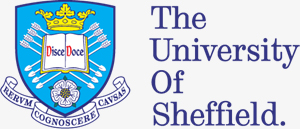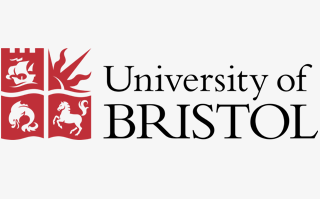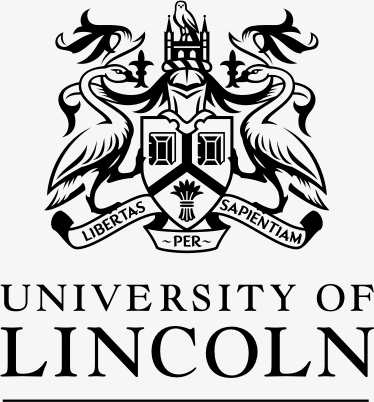Strategic Task Groups
The UK-RAS Network launched our Strategic Task Groups programme in November 2019. Strategic Task Groups are issue-based interest groups, lead by members of the UK-RAS Network, responsible for organising and co-ordinating various activities focussed on key research areas.
Through organising a range of activities — from forums and hackathons to white papers and exhibitions — it is hoped that the task groups will facilitate members and non-members of the network to become involved with cross–institutional and cross-disciplinary activities, research projects and events, promote ground-up engagement, drive strategic decisions, and influence policy and funding decisions, as well as promote RAS research within the UK.
We believe the Strategic Task Groups will be instrumental to providing future strategic direction to the UK, the Network, and its relationship with other relevant organisations.
We awarded funding to five Strategic Task Groups as part of the first call. In 2022, initially in response to the Pump Priming call, a project led by the University of Birmingham further developed into a UK-Cross Industry RAS Development Task Force.
Skills and Education in Robotics and Autonomous Systems
The University of Sheffield
Utilising robotics and autonomous systems to
increase automation will be essential for the UK to increase productivity and
remain internationally competitive. However, the biggest barrier to advancing
the RAS sector of the UK economy and to boosting UK productivity more generally
is skills and education. A 2016 review by the The ScaleUp Institute highlighted
the “consistent, ongoing demand … [of UK companies] … for STEM skills across
all parts of the country and most industry sectors”, and concluded that “access
to people with the right skills was the biggest barrier preventing their
growth”. RAS research in the UK also suffers from a lack of diversity.
The “Skills and Education in Robotics and
Autonomous Systems” Task Group aims to understand RAS training needs; identify
gaps, challenges, opportunities and best practises; demystify RAS technologies
and inspire people from diverse backgrounds to explore RAS careers; and
influence public policy. To achieve these aims, the Task Group will organise a
hackathon, engagement activities, and a national conference to address the
skills gap in RAS. The Task Group’s activities will culminate with the
publication of a White Paper on how to close the UK RAS skills gap.
Task Group Leaders:
Additional Partners:
- Cranfield University
- Heriot Watt University
- Sheffield Hallam University
- The University of York
- The University of the West of England
- Coleg Gwent
Soft Robotics Task Group
University of Bristol
Soft robotics is a new and rapidly growing field
of research that expands traditional robot design to incorporate a range of new
materials including silicon, hydrogels and smart materials. This highly
interdisciplinary approach can develop solutions relevant to a wide range of
sectors, from agriculture to health and from industry to entertainment. UK
researchers are at the forefront of this new field and this Strategic Task
Group will help to strengthen that position and establish a roadmap for soft
robotics to meet both industrial and societal needs.
The “Soft Robotics” Task Group will establish an
industry advisory board to foster closer links between academic research and
the needs of industry and create and manage a website as a central hub for soft
robotics researchers. The Task Group will organise a recurring research competition
for young researchers focussed around the grand challenges identified through
consultation with the industry advisory board.
Task Group Leaders:
Additional Partners:
- The University of Edinburgh
- University of Oxford
- Queen Mary University of London
- The University of Sheffield
- Royal College of Art
- University College London
Legged Robotics and Locomotion Technical Committee
University of Oxford
Legged robotics is a rapidly growing field of
research with potential applications in industry inspection and maintenance,
security, and particularly in assistive technologies for rehabilitation and
mobility.
The “Legged Robotics and Locomotion Technical
Committee” aims to form a collective body of academics and industry partners;
organise a winter school for early career researchers; host public engagement
activities; and publish a White Paper on legged robotics and locomotion.
Task Group Leaders:
Additional Partners:
Find out more on their website.
Surgical Robotics Task Group
University of Leeds
Robotics is as the forefront of surgical innovation
and has spearheaded developments in precision medicine, personalised
healthcare, and quality of-life improvement. Although the field is 25 years
old, new innovations such as artificial intelligence and soft actuators are
laying the foundations for major breakthroughs in the future. To maintain the
UK’s leading role in this field, the robotics community will benefit from
periodic research scoping exercises that review the current state and develop a
roadmap for future progress.
The “Surgical Robotics” Task Group will organise
workshops for academics and surgeons to review the state-of-the-art in UK
Surgical Robotics, publish an updated version of the 2016 UK-RAS White Paper on
Surgical Robotics, and release a video documentary on UK Surgical
Robotics.
Task Group Leaders:
Additional Partners:
- University College London
- Queen Mary University of London
- University of the West England
- The University of Sheffield
- University of Edinburgh
Strategic Task Group in Agri-Robotics (STAR)
University of Lincoln
Robotics is revolutionising the way we produce
food in the UK, from autonomous weeding and drilling robots to flexible food
manufacturing systems on the factory floor. These “farm to fork” technologies
bring together the fields of artificial intelligence, sensing, soft robotics,
locomotion, and many more to create robots that can successfully navigate the
farm or factory environment, manipulate a variety of agricultural products from
the delicate to the bulky, and work collaboratively with humans in the field.
The “Strategic Task Group in Agri-Robotics” aims
to bring together researchers in robotics, autonomous systems and AI with a
focus on agriculture and food production. The Task Group will organise a summer
school on agri-food technology, an academic symposium and public demos; set up
an industry- and government-focussed panel; establish an agri-food-based
competition for autonomous robots; and publish a White Paper outlining plans
for a national lifelong learning collaborative for professional development in
agri-food technologies. Additionally, they will devise plans for a national
test facility for benchmarking and demonstrating new agri-food technologies.
Task Group Leaders:
Additional Partners:
- University of East Anglia
- Harper Adams University
- King’s College London
- Loughborough University
- Royal Agricultural University
- University of Bath
- University of Birmingham
- University of Liverpool
- University of Nottingham
- University of Reading
- The University of Sheffield
- University of the West of England – UWE Bristol
- Oxford Robotics Institute
- Digital Farming Limited
- SAGA Robotics
UK Cross Industry RAS Development Task Force
University of Birmingham
Establishing a UK-Cross Industry RAS Development Task Force, and associated community of interest puts a much-needed focus on the development side of the R&D equation in support of a co-ordinated, whole economy approach to the exploitation of advancing RAS capabilities. The Task Force is working to document a clearer understanding of the work programmes currently driving the potential for RAS investment, extrapolate the common requirements and underpin opportunities for cross-sector leadership to establish the fundamentals of scalable solutions that underpin broad economic growth and the modernisation of the UK’s strategically critical sectors. Initiatives include the curation of a cross-sector problem book and innovation strategy, and hosted discussions and events to inform requirements gathering for investments, standards and regulations, policy, and research.
Task Group Leaders
- Chaired by Tobias Lin, Space Directorate, Department for Science Innovation and Technology
- Co-chair, Dan Jones, UK Space Agency
- Academic Lead, Samia Nefti-Meziani, University of Birmingham
Additional Partners
- Department for Business & Trade
- Department for Transport
- Department for Environment Food & Rural Affairs
- University of Leeds
- University of Warwick
- University of Surrey
- Innovate UK KTN
- Science and Technology Facilities Council
- Manufacturing Technology Centre
- Construction Innovation Hub
- Nuclear Advanced Manufacturing Research Centre
- The Lean Construction Institute
- National Highways
- Lower Thames Crossing
- Heathrow Airport
- Network Rail
- Sellafield Sites
- National Nuclear Library
- National Robotics Network
- The Lincoln Institute of Agri Food Technology
- Health and Safety Executive
- Arcadis
- MDA
- Jacobs






